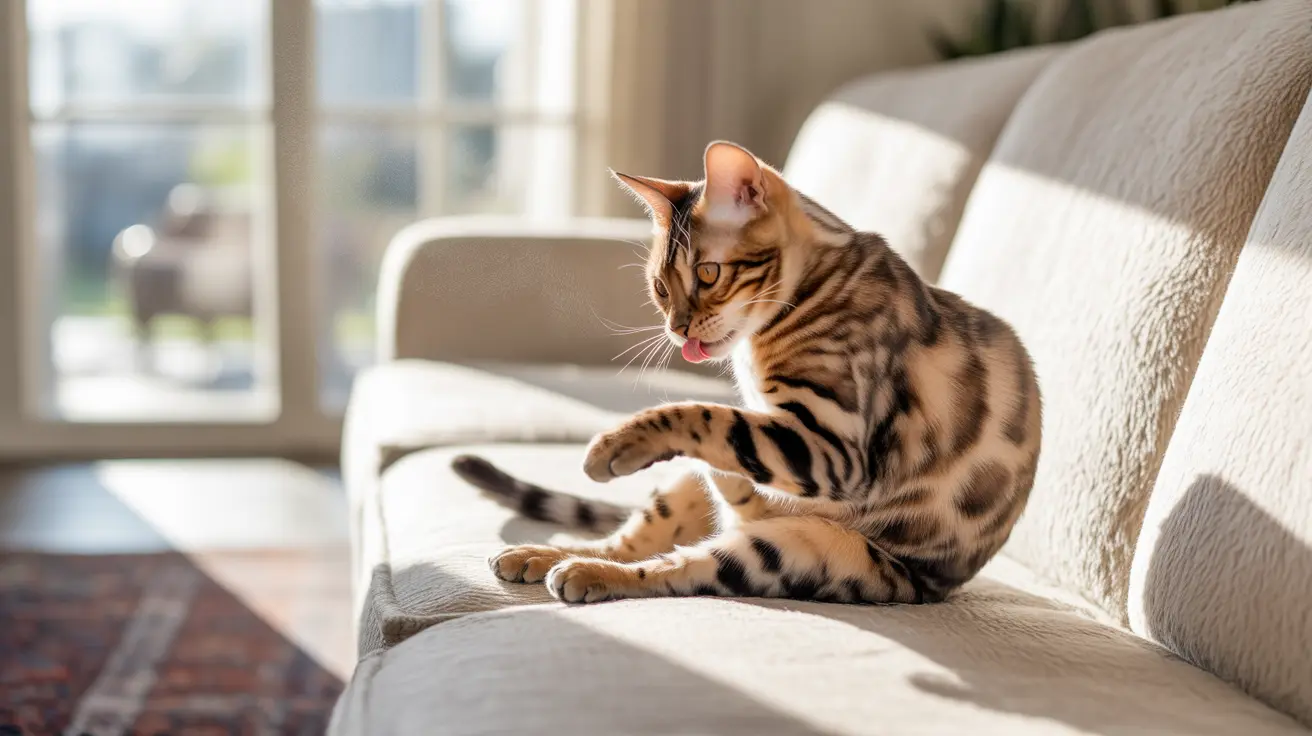The Science Behind Feline Emotions
Current research shows that cats experience basic emotions such as fear, happiness, and anger. However, complex emotions like embarrassment require a level of self-awareness and social consciousness that hasn't been definitively proven in cats.
Unlike humans, cats don't show physiological signs of embarrassment like blushing or nervous laughter. Their reactions to awkward situations are more likely tied to survival instincts and stress responses than actual feelings of embarrassment.
Behaviors Often Mistaken for Embarrassment
When cats display what we perceive as embarrassed behavior, they're usually exhibiting one or more of these reactions:
- Quick grooming after a mishap
- Avoiding eye contact
- Rushing away from the scene
- Hiding temporarily
- Excessive tail flicking
These behaviors are typically stress responses or self-soothing mechanisms rather than expressions of embarrassment. Cats are naturally dignified creatures, and their reactions to losing balance or making mistakes are more about regaining composure and ensuring safety.
Understanding Your Cat's Real Emotions
While cats may not experience embarrassment as we know it, they do possess a sophisticated emotional range. They can feel:
- Contentment
- Anxiety
- Frustration
- Excitement
- Territorial stress
- Affection
These emotions are expressed through body language, vocalizations, and behavioral changes that are more straightforward and instinctive than complex social emotions like embarrassment.
How to Respond to Your Cat's "Embarrassing" Moments
When your cat has an awkward moment, the best response is to remain calm and neutral. Making a fuss or laughing might increase their stress or anxiety. Instead:
- Give them space to recover
- Maintain normal routines
- Avoid drawing attention to the incident
- Provide a safe retreat if needed
Frequently Asked Questions
Can cats get embarrassed, and if so, how do they show it?
While cats display behaviors that might look like embarrassment, there's no scientific evidence that they experience this emotion as humans do. What we interpret as embarrassment is usually a stress response or self-soothing behavior.
Why do cats hide or avoid eye contact after doing something clumsy? Is this a sign of embarrassment?
Cats typically hide or avoid eye contact after clumsy moments as a natural stress response or self-protective behavior, not due to embarrassment. This reaction helps them assess their environment and ensure they haven't made themselves vulnerable.
How can I tell if my cat is feeling embarrassed or just stressed after a mishap?
What might look like embarrassment is almost always stress or discomfort. Look for signs like tail flicking, ear movement, quick grooming, or hiding. These are stress indicators rather than signs of embarrassment.
Do cats have the cognitive ability to experience complex emotions like embarrassment like humans do?
Current scientific evidence suggests that cats lack the cognitive complexity required for self-conscious emotions like embarrassment. While they experience basic emotions, complex social emotions appear to be beyond their capabilities.
What behaviors in cats might be misinterpreted as embarrassment, and how should I respond to them?
Behaviors like quick grooming, hiding, or running away are often misinterpreted as embarrassment. The best response is to remain calm and give your cat space to process their stress or discomfort naturally.
Conclusion
While cats may not experience embarrassment in the human sense, they are emotionally complex creatures deserving of our understanding and respect. By recognizing their true emotional capabilities and responding appropriately to their behaviors, we can better support our feline friends through their occasional awkward moments.






